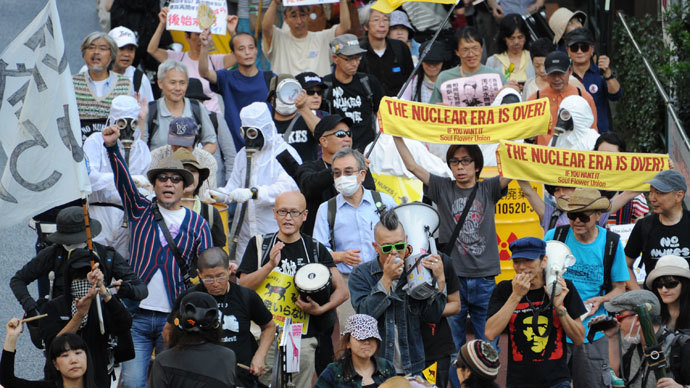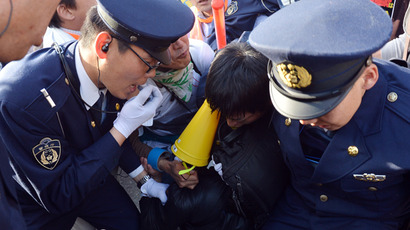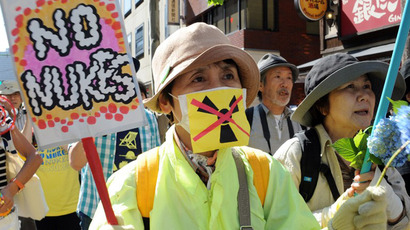'Don’t pollute our sea:' Mass demo in Tokyo to ban nuclear energy (PHOTOS)

Some 9,000 activists took to the streets of Tokyo on Sunday to protest nuclear power. The march comes as Japanese authorities are considering restarting the country’s nuclear reactors, which were shut down in the wake of the 2011 Fukushima disaster.
The demonstration ended with a rally in front of the headquarters
of Tokyo Electric Power Company (Tepco), the operator of the
crippled Fukushima power plant.
Activists chanted “Stop the atom” and “Don’t pollute our sea,”
referring to the continued leaking of radioactive water, which
Tepco uses to control the temperature of the melted reactor cores
at Fukushima.
The protesters also called on Japanese media to report more often on the situation at the power plant, which was damaged by the 2011 quake and tsunami.

Anti-nuclear sentiment has grown massively in Japan since the
Fukushima disaster, one of the world’s worst nuclear power
incidents. Rallies similar to Sunday’s are held regularly and
attract thousands of people. According to opinion polls, some 70
percent of Japanese believe that the country’s nuclear power
industry should be closed down.
The opposition to nuclear power has also affected Tokyo’s
national security policies. On Friday, Prime Minister Shinzo
Abe’s government said it would consider signing a joint statement
by the United Nations calling for the abolition of nuclear
weapons, Asahi Shimbun newspaper reported.
Japan, officially an anti-militaristic country since its defeat
in World War II, has relied for decades on the US nuclear
umbrella for protection and has been reluctant to side with
international proposals to ban nuclear weapons. But the Japanese
government has indicated it may sign a joint UN General Assembly
statement next week saying that nuclear weapons should “never
[be] used again, under any circumstances.”
Abe’s government initially said it would not sign the statement, but reviewed its position after the mayors of Hiroshima and Nagasaki, the two cities that had nuclear bombs dropped on them by the US in 1945, and a number of civic groups urged Tokyo to support it.
















